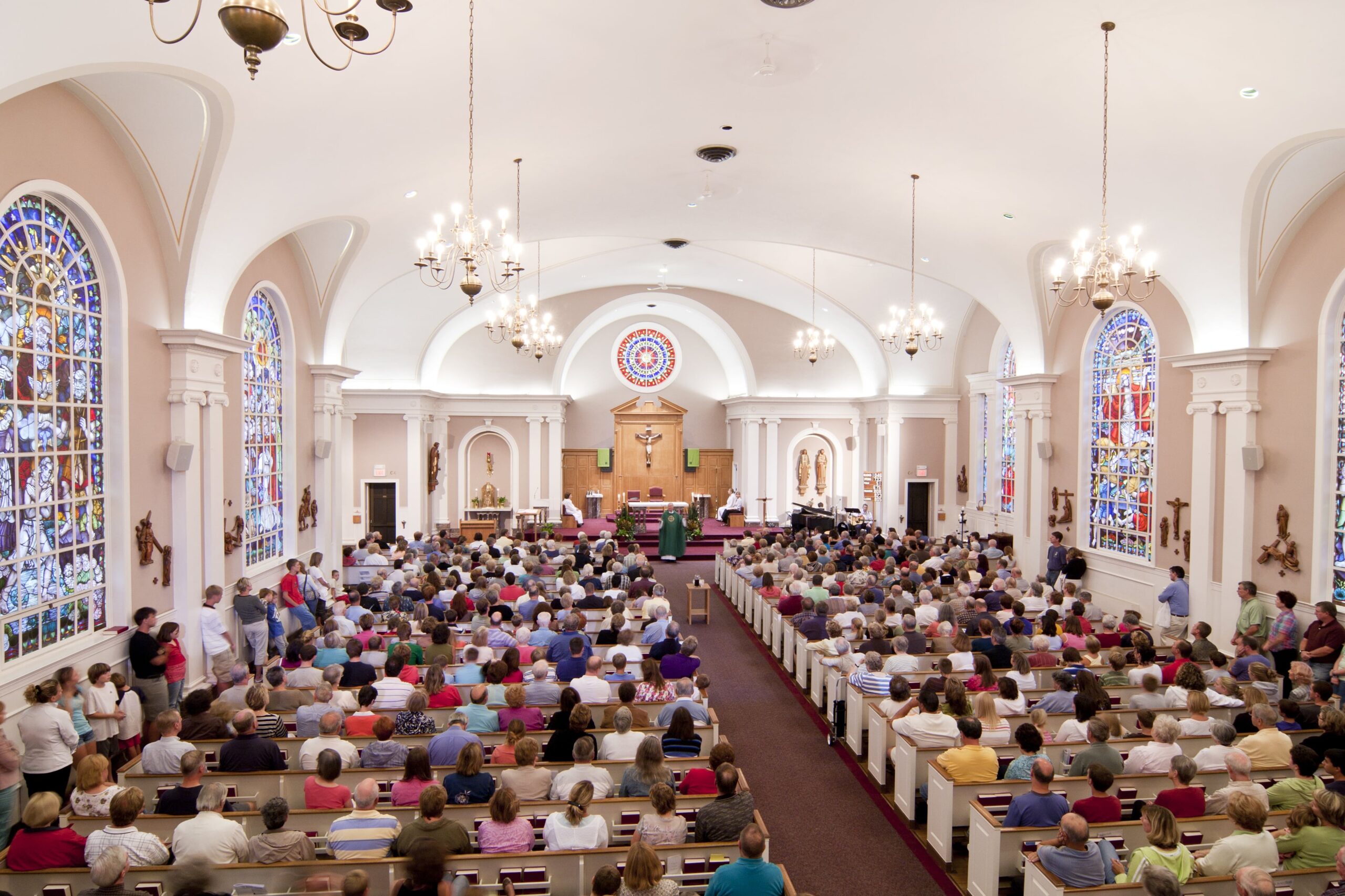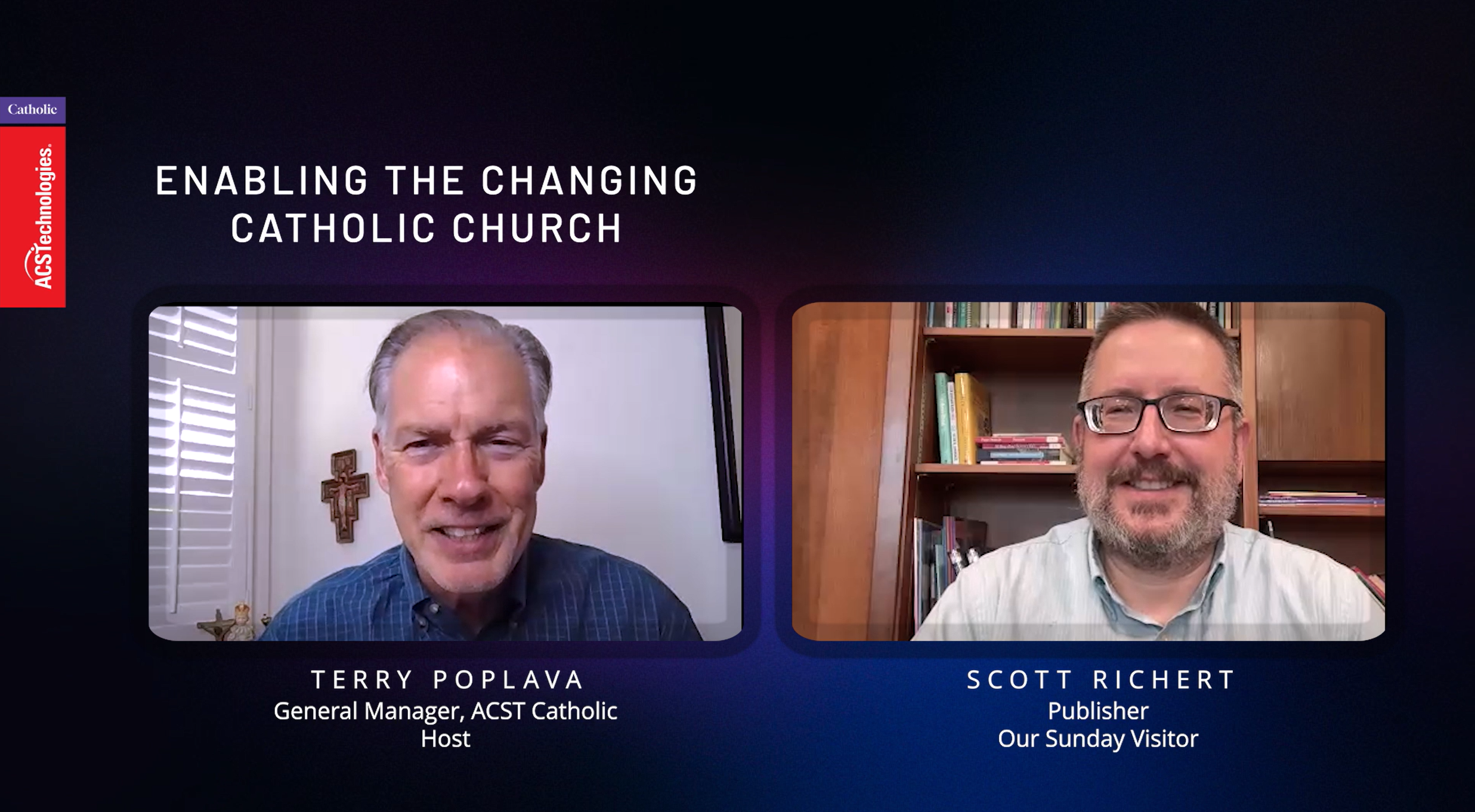The surgeon general’s advisory on the healing effects of social connection and the community contains some startling but not really surprising language: “Loneliness and social isolation increase the risk for premature death by 26% and 29% respectively.” Springtide Research echoes the same for young people: “Our data in Belonging indicate that one in three of our young people feel completely alone much of the time. Nearly 40% have no one to talk to and feel left out, and 45% feel as if no one understands them.” It seems our desire for independence and empowerment has led to a false sense of personal security, thinking that each of us has what we need for our lives. These findings and the trend are alarming. Is this the demise of our social fabric? The answer should be a resounding NO. The answer, obvious to those of us who enjoy the support of our parish communities, is the Church. Our parishes can be the antidote.
“… in all these things we are more than conquerors through him who loved us. For I am sure that neither death, nor life, nor angels, nor principalities, nor things present, nor things to come, nor powers, nor height, nor depth, nor anything else in all creation, will be able to separate us from the love of God in Christ Jesus our Lord.” Rom 8:38-39
The “epidemic” calls for urgent proactive steps for all of us. This is truly a time for missionary discipleship, where our faith-filled parishioners brimming with the Good News also recognize that each of us owns the mission to bring people into our parish communities. That the welcoming, nurturing community of our parishes is critically important. That our communities are built on personal relationships.
What is our parish response to people who are searching, lonely and need help? While we are not typically equipped for medical or mental issues, we can be a first step for people in need if it is an intentional focus for the parish.
Our parish leaders often express a desire to attract more young people into the community. The ACST National Study of US Catholics notes that the majority of active Catholics fall into the category of Boomer or Silent Generation. These populations are projected to decline 23% and 63% respectively over the next decade. Even Gen X and Millennial groups are projected to decline. Gen Z and future generations are growing. Yet Gen Z age people are less than 5% of the Catholic population.
What are the implications of this? The Gen Z population largely has no experience of church and as a result does not see the relevance of church in their lives. Our parishes cannot expect them to show up to events on their own, much less to attend Mass. Our responsibility is to go out to them to address the chasm of loneliness they are experiencing but may not even realize. Our parish leaders and parishioners often focus on inviting people to Mass, which might work for a lapsed Millennial or Boomer, but not for a Gen Z.
To be an antidote to the epidemic of loneliness, we must name it and identify how our parishes can respond given the charisms of our parishioners. It means a continued focus on forming, inspiring and evangelizing our parishioners so that all are excited to talk with others about their faith. Part of this is a focus on engaging people in the mission of the parish and prioritizing participation in addition to Mass attendance. And it means a reassessment of ministries to orient the parish to the external community, without losing the spiritual, mystical celebration or the source and summit of our faith.
Here are 5 actions or insights for parish leaders to consider in this apostolic time:
- Define “Engagement”. Parish leaders should have a consistent definition of what it means for parishioners to be engaged in the parish, including observable behaviors that can be identified as increasing levels of engagement. The point is to know if the mission and ministry of the parish are resulting in a vibrant community of people. And the expectation that every parishioner has an active role in the parish.
- Rethink “Welcome”. Ingrain hospitality and welcome into all levels and activities in the parish, beyond greeting people as they come to Mass. A more friendly greeting in the parking lot or at the door of the church will not attract Gen Z or disaffiliated people. Establish other channels for connection, perhaps exploring programs such as “Alpha for Catholics”.
- Foster building “Bridges of Trust”. In her book “Forming Intentional Disciples”, Sherry Weddell explains that there is a period of “pre-evangelization” which must establish trust before a person can begin a journey of conversion. Thresholds of conversion begin with a bridge of trust to a person and to Christ.
- Establish a “Life-Needs” Ministry. Identify a group whose ministry is to care for people who are lonely. Establish a network with providers including counselors, spiritual directors, campus ministry, mental health services, etc. so the parish can connect people to the right service if it is beyond the capability of the care group.
- Communicate Impact. Set clear priorities for engagement and ministry with focused goals so the parish is not overwhelmed and parishioners exhausted. With clear milestones, parish leaders can then communicate and celebrate the ways parishioners are living as missionary disciples.
Each person makes a difference. The ACST American Beliefs study data show that people are searching for warm and friendly encounters when searching for a church, before sacraments and homilies. Relationships are personal and individual. As Jesus went out and encountered people in his travels, so we must each go out.
Terry Poplava
Terry Poplava serves as General Manager, ACST Catholic. As a cradle Catholic, his faith was lukewarm until he was confronted by the intense challenge and commitment he heard in the message about Stewardship. “What do I own and what owns me?” which led him to executive roles at Our Sunday Visitor and Catholic Leadership Institute before his current focus on serving the Catholic Church at ACS Technologies. Terry has extensive experience working with churches across the U.S., supporting their planning, stewardship, and engagement efforts




